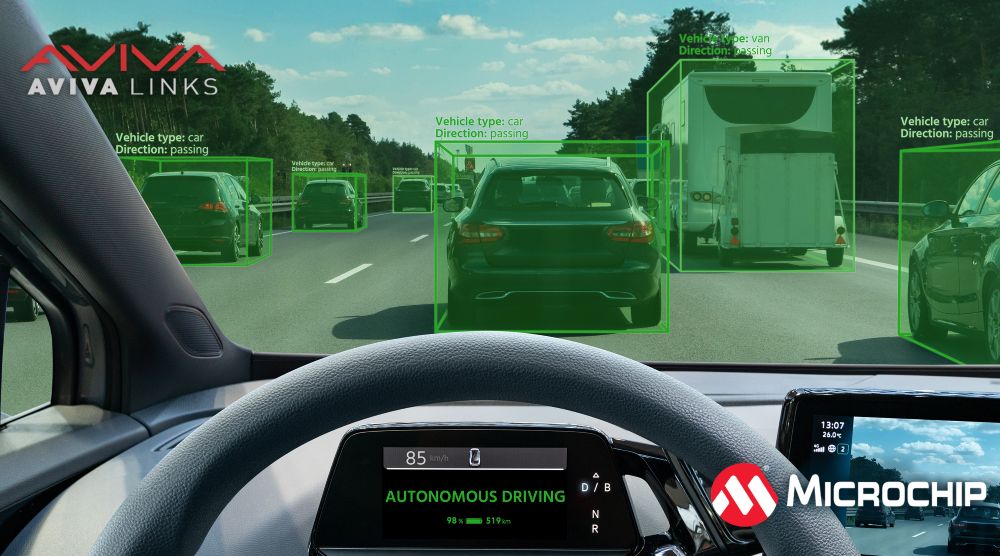The global automotive industry is advancing its transition from proprietary SerDes (serializer/deserializer) systems to an open, interoperable communication standard defined by the Automotive SerDes Alliance (ASA) and its first open-standard protocol, ASA Motion Link (ASA-ML). In a major milestone, Microchip Technology and AVIVA Links have successfully demonstrated seamless interoperability between their ASA-ML chipsets, underscoring the readiness and scalability of the ASA-ML ecosystem for next-generation Advanced Driver Assistance Systems (ADAS) and In-Vehicle Infotainment (IVI) applications.

ASA-ML enables asymmetric high-speed communication that connects the growing array of cameras, sensors, and displays powering intelligent vehicle networks. With major OEMs and Tier 1 suppliers adopting the standard, ASA-ML is becoming the cornerstone for scalable, high-bandwidth connectivity across modern automotive architectures. The Automotive SerDes Alliance now counts more than 175 members, including leading automakers such as BMW, Ford, GM, Hyundai Kia, Nio, Renault/Ampere, Stellantis, Volvo, and Xiaopeng Motors, all collaborating to bring ASA-ML–enabled systems to market.
Kevin So, Vice President of Microchip’s Communications Business Unit, said, “Microchip is a market leader in automotive networking and connectivity, and achieving robust ASA-ML interoperability with AVIVA Links—who has announced a pending acquisition by NXP—is a pivotal moment for the Automotive SerDes Alliance and a clear signal to the market. This collaboration highlights the benefits of a multi-source, open standards approach and gives automotive OEMs and Tier 1 suppliers the confidence to design their next-generation ADAS architectures around ASA-ML, knowing they have a scalable, robust and secure connectivity standard backed by leading semiconductor suppliers.”
The ASA-ML standard supports asymmetric, high-speed video, control, and data transmission up to 16 Gbps. This capability is essential for advanced autonomous and driver-assistance functions that require multiple cameras and sensors to operate reliably in real time. By offering scalability, flexibility, and interoperability across vendors, ASA-ML reduces dependence on proprietary solutions and mitigates supply chain risks.
Kamal Dalmia, CEO of AVIVA Links, said, “AVIVA Links is focused on delivering advanced connectivity and enabling standards-based, interoperable solutions for the next generation of automotive systems. Proving interoperability with Microchip’s ASA-ML SerDes chipset is an important milestone for the automotive industry, and together with our pending acquisition by NXP, will further drive confidence in ASA-ML adoption at OEMs and Tier 1s.”
Microchip, which became the first major semiconductor vendor to commercialise an ASA-ML chipset through its acquisition of VSI Ltd., continues to expand its leadership in open automotive networking. Its VS7000 ASA-ML SerDes chipset family, now available for sampling to qualified customers, supports applications in ADAS, IVI, and other high-speed data environments.
This interoperability demonstration between Microchip and AVIVA Links confirms the maturity of the ASA-ML standard, reduces vendor lock-in risks for automakers, and is expected to accelerate ASA-ML integration into future vehicle platforms, including those featuring surround view, driver monitoring, and high-resolution display systems. The collaboration marks a critical step forward in establishing a multi-vendor, secure, and high-performance communication backbone for software-defined and connected vehicles of the future.




